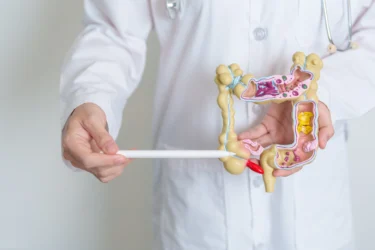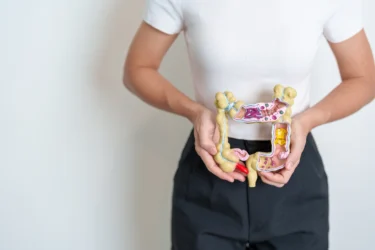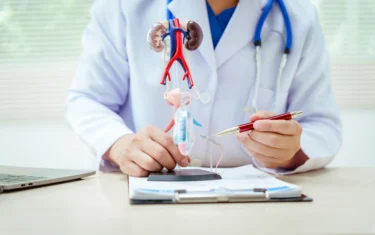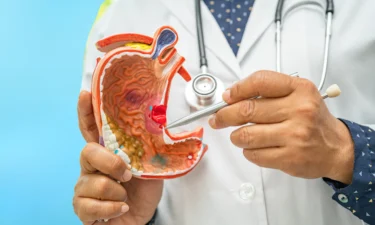Causes Behind Recurring Stomach Pain
By Dr. Vishesh Bharucha +2 more

Get,

to manage your symptom
Get your,


4 Cr+ families
benefitted

OTP sent to 9988776655



You’ve successfully subscribed to receive
doctor-approved tips on
Whatsapp

Get ready to feel your best.

Hi There,
Download the PharmEasy App now!!


Register to Avail the Offer
Send OTPBy continuing, you agree with our Privacy Policy and Terms and Conditions

Hi There,
Sign up on PharmEasy now!!
Trusted by 4 crore+ families

OTP sent to 9988776655



You have unlocked 25% off on medicines




Code: NU25

Comments


Leave your comment here
By Dr. Vishesh Bharucha +2 more
Table of Contents
Stomach pain is usually a localized ache that has happened to all of us. Usually, stomach cramps and discomfort indicate digestive disorders. But the intermittent colicky pain that occurs sometimes, can alarm you. If you have been witnessing this kind of pain over a long period of time, then it is time you visit the doctor, especially if your stomach pain is accompanied by symptoms like nausea and vomiting.
In this blog, we will discuss 6 common causes behind stomach pain that comes and goes. It is important to understand these causes and know when to seek immediate medical attention to avoid risk of any complications

Here are a few likely causes behind recurring stomach pain:

Sometimes the appendix, an abdominal organ, can get inflamed causing a condition called appendicitis, which could lead to stabbing pains that intensify and ebb. The pain usually originates around the umbilicus and migrates to the right lower quadrant, and it typically intensifies and persists. There might be other symptoms like bloating, vomiting, fever, loss of appetite, and rebound tenderness. The symptoms usually develop rapidly over a few hours. Appendix rupture can cause serious medical emergencies like peritonitis and sepsis, so you must seek immediate medical attention1.

These commonly cause sharp, dull, aching, or sudden, often localized to the lower abdomen or pelvis. Many women have ovarian cysts, which are usually harmless. But sometimes they enlarge, and this is when they trigger pain.
In such cases, the epicentre of the pain is in the lower abdomen or pelvis, usually on one side,. You may also notice bloating and a sensation of pressure in your stomach2. You can use hot compresses as a temporary measure to deal with the pain. While warm compresses can ease mild discomfort, they should not be used as a substitute for medical evaluation in the case of sudden or severe pain, as urgent intervention may be needed for complications like torsion or rupture.

Sometimes bilirubin or cholesterol accumulates to form stone shaped objects inside your gallbladder. They may even obstruct the cystic duct (from the gallbladder) or common bile duct (if the stone travels farther), and this causes colicky, steady, or severe right upper quadrant or epigastric pain3. Other indicators of gallstones are a yellowish tinge in the eyes, nausea, vomiting, sweating and fever. While some herbs may soothe mild dyspepsia, they do not treat gallstones and may delay proper care. In fact, peppermint can sometimes worsen symptoms by relaxing the sphincter of Oddi.

In Irritable Bowel Syndrome (IBS), you may experience pain in your stomach after meals. Or the pain might appear during specific times of the day. Although, IBS cannot be diagnosed solely based on symptoms after meals; it requires clinical evaluation and ruling out other conditions. Other symptoms of this disorder are pain accompanying defecation, the presence of mucus in faeces, diarrhoea4, and flatulence.

UTIs are a common, painful and bothersome disease. Usually, the bladder is a common site of infection, but actually, any section of the tract can become infected. Not only does it trigger pain in the abdomen, but you might also feel a burning sensation when you urinate5.
In my experience the major causes of abdominal pain in children are behavioural, lymph nodes in intestines and worms. All should be evaluated and treated by a paediatrician.
Dr. M.G. Kartheeka, MBBS, MD(Pediatrics)

This ulcer develops on the lining of your stomach. Prolonged usage of specific medicines such as NSAIDs (painkillers) and infections like H-pylori can cause ulcer formation6. They can cause a constant burning sensation in your abdomen. Some ulcers may heal spontaneously but usually they require medical treatment to ensure healing and prevent complications like bleeding or perforation.
Children, especially in the early ages, frequently suffer from stomach aches. If their stomach ache is accompanied by weight loss, diarrhoea, vomiting, fever, you should always consult a paediatrician to diagnose the cause and provide the treatment for the same.
Dr. Ashish Bajaj, M.B.B.S., M.D. in Clinical Pharmacology and Toxicology
If you face any of these signs while dealing with abdominal pain then don’t wait any longer. Consult a doctor immediately!
Also Read: Dysentery: Causes, Symptoms, Treatment, And Home Remedies
Unless you are facing any of the above-mentioned symptoms, your abdominal pain will most likely go away without the need for any special medical treatment. However, here are a few ways you can deal with abdominal pain yourself at home to reduce the pain:
Also Read: Right-Sided Abdominal Pain: Understanding Causes and Treatment Options
Ignoring abdominal pain that comes and goes can lead to medical complications in the future, you really should consult a doctor to find out if any one of the above-mentioned disorders is at the root of your stomach ache. Some of them need immediate medical treatment. Don’t wait till the symptoms become even more prominent because the longer you wait, the longer it will take for you to heal completely.
Also Read: Natural Home Remedies for Ear Pain
Yes, stress might cause stomach pain. When under stress, the body releases hormones that can disrupt the digestive system, leading to symptoms like stomach pain, nausea, or indigestion.
Yes, constipation can cause stomach pain as it leads to the accumulation of stool in the intestines, which can cause cramping and discomfort in the abdominal region. This pain can range from mild to severe depending on the extent of constipation.
Yes, back pain can sometimes lead to stomach pain. Conditions such as spinal issues or muscle strains in the back can radiate discomfort to the abdomen, causing secondary stomach pain or discomfort. However, it’s essential to consult a healthcare professional for a proper diagnosis and treatment.
Yes, dehydration can cause stomach pain as it can lead to reduced blood flow to the stomach lining, causing irritation and discomfort. Additionally, dehydration can slow down digestion, resulting in constipation, which can also contribute to stomach pain.
Yes, gas can cause stomach pain as it can accumulate in the digestive tract, leading to bloating, cramping, and discomfort. Excessive gas production from factors like certain foods, swallowing air, or underlying digestive conditions can exacerbate stomach pain.
Yes, pregnancy can cause stomach pain due to various factors such as hormonal changes, stretching of the uterus, and pressure on surrounding organs as the foetus grows. Common causes include round ligament pain, constipation, and gas, but severe or persistent pain should be evaluated by a healthcare provider.
Haemorrhoids typically don’t directly cause stomach pain, as they are swollen veins in the rectum or anus. However, severe cases or complications like thrombosis can lead to discomfort that may radiate to the lower abdomen. It’s crucial to consult a healthcare professional for proper diagnosis and treatment of any abdominal pain.
Stomach pain after sex isn’t always normal. While some mild discomfort can happen due to muscle movements, if it’s severe or keeps happening, it’s essential to see a doctor to find out why.
Yes, stomach pain can be a symptom of menstruation, commonly known as menstrual cramps or dysmenorrhea. These cramps result from the uterus contracting to shed its lining, causing discomfort in the lower abdomen. However, if the pain is severe or accompanied by other concerning symptoms, it’s advisable to consult a healthcare provider.
Disclaimer: The information provided here is for educational/awareness purposes only and is not intended to be a substitute for medical treatment by a healthcare professional and should not be relied upon to diagnose or treat any medical condition. The reader should consult a registered medical practitioner to determine the appropriateness of the information and before consuming any medication. PharmEasy does not provide any guarantee or warranty (express or implied) regarding the accuracy, adequacy, completeness, legality, reliability or usefulness of the information; and disclaims any liability arising thereof.
Comments

Leave your comment...

View all comments(1)
You may also like
You are most welcome. Stay tuned for more such information.